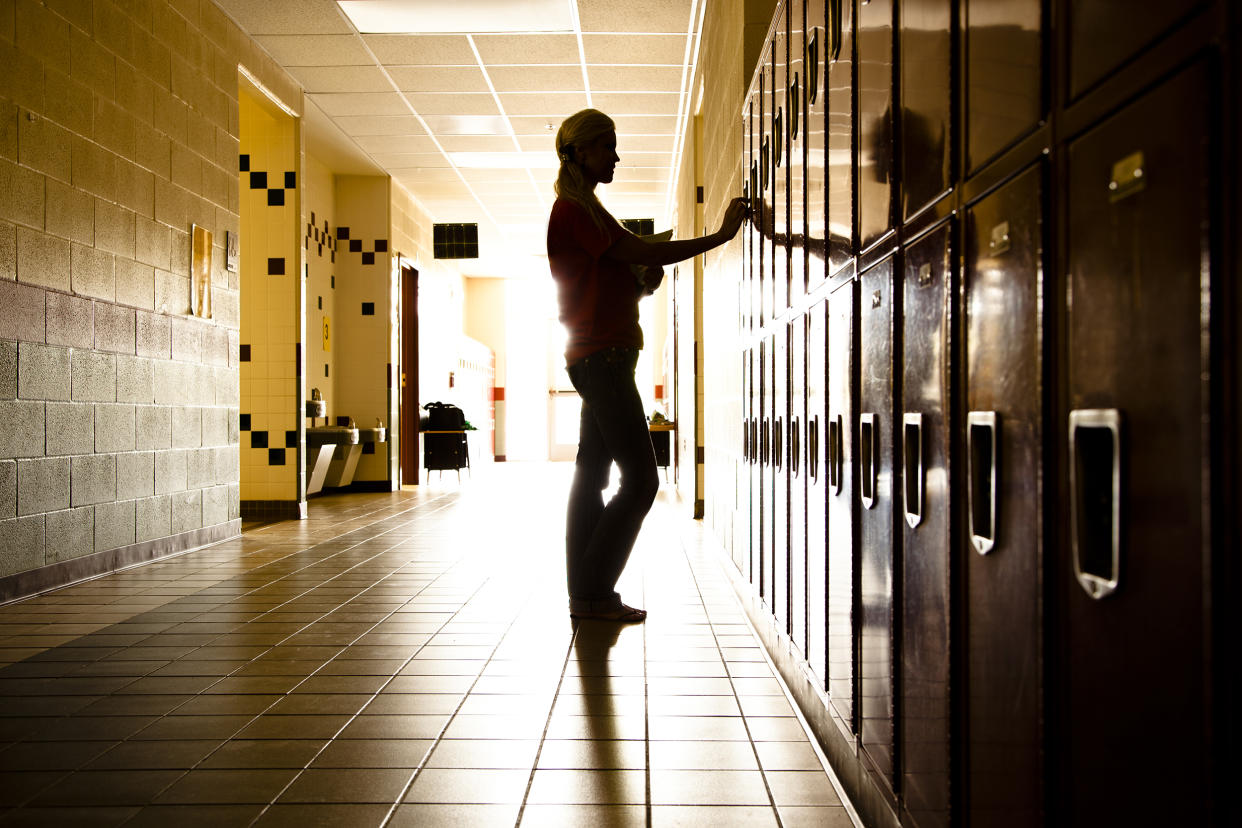California Moves Back School Start Times To Help Teens Sleep

This year, California middle and high schoolers can hit snooze a little longer in the mornings thanks to a landmark law that passed in 2019 making school start times later.
The law, which states that students at public high schools cannot attend classes before 8:30 a.m. and no earlier than 8 a.m. for middle schoolers, went into effect on July 1.
“California’s law is the first of its scope in the entire country — we are the only state that’s set minimum allowed start times for middle and high schools," Lisa Lewis, parenting journalist and the author of "The Sleep-Deprived Teen: Why Our Teens Are So Tired, And How Parents And Schools Can Help Them Thrive," told TODAY Parents.
Lewis added that ensuring teens get enough sleep is "a public health imperative."
"We know, based on years of study, that shifting to healthy start times is a proven way to make a difference," Lewis said.
Steven Lockley, a neuroscientist at Brigham and Women’s Hospital and associate professor at Harvard Medical School, told TODAY Parents California's law is a big step in improving sleep, learning and health in children.
"Early school start times guarantee that children, and particularly adolescents, will become sleep deprived as their circadian clocks and sleep regulation systems naturally push sleep to a later time, making it harder to go to sleep early enough to get sufficient sleep before school," he said.
Related: Study shows what parents know: Later school starts are better for kids
Lockley, who co-authored a study done in the UK showing the benefits of a 10 a.m. start time on exam results and sickness, said that good sleep is vital in children and teens, for alertness and performance and also for learning and health.
"If you don’t sleep, you can’t learn, and therefore not only will better sleep improve alertness and attention in the daytime at school, it will also improve the learning during sleep that results from the better attention," Lockley told TODAY.
The Harvard neuroscientist explained that there are also benefits to more sleep for other physiological systems.
"For example, growth hormone is only released during slow wave sleep and might be insufficient if children don’t sleep enough," Lockley said. "The hormone melatonin, which is important for circadian rhythm regulation and metabolism, is suppressed by staying awake and seeing light. More sleep will reduce the risk of light exposure and melatonin suppression."
Lockley said that in the longer term, adults can expect to see better grades, better mental health, fewer sick days, fewer car accidents on the drive to school and less risk-taking in kids who get more sleep.
Lewis told TODAY that she hopes California's precedent sets the bar for more states to follow suit.
"Given that we’re often a bellwether for other states, I hope this boosts similar actions elsewhere, including current bills in New York and New Jersey," she said.
Related: New Jersey lawmakers push for later high school start times
Lockley agreed.
"This should be a national initiative as all children can benefit immediately," he said, adding that Start School Later — a 501(c)(3) non-profit organization dedicated to healthy, safe and equitable school hours — has proven templates for other schools to follow. "There is also little cost in improving educational attainment in this way, as opposed to smaller class sizes, longer school days or longer semesters. While the new times may impact other schedules, like sports programs, these are secondary to the primary role of schools, which is to educate."
Related: Back-to-school: Helping children kick their screen addiction
In addition to school start times, Lockley said adults should also be aware of other factors that affect children's sleep, such as:
electronic device use
caffeine use
over-scheduling
workload
stress
"It is important to optimize the sleeping environment as much as possible — dark, quiet, cool (and) comfortable — and to let teenagers sleep in at weekends," Lockley told TODAY Parents. "Sleep is essential and should be the highest priority for children and adolescents. Schedule sleep first and then everything else around it."
